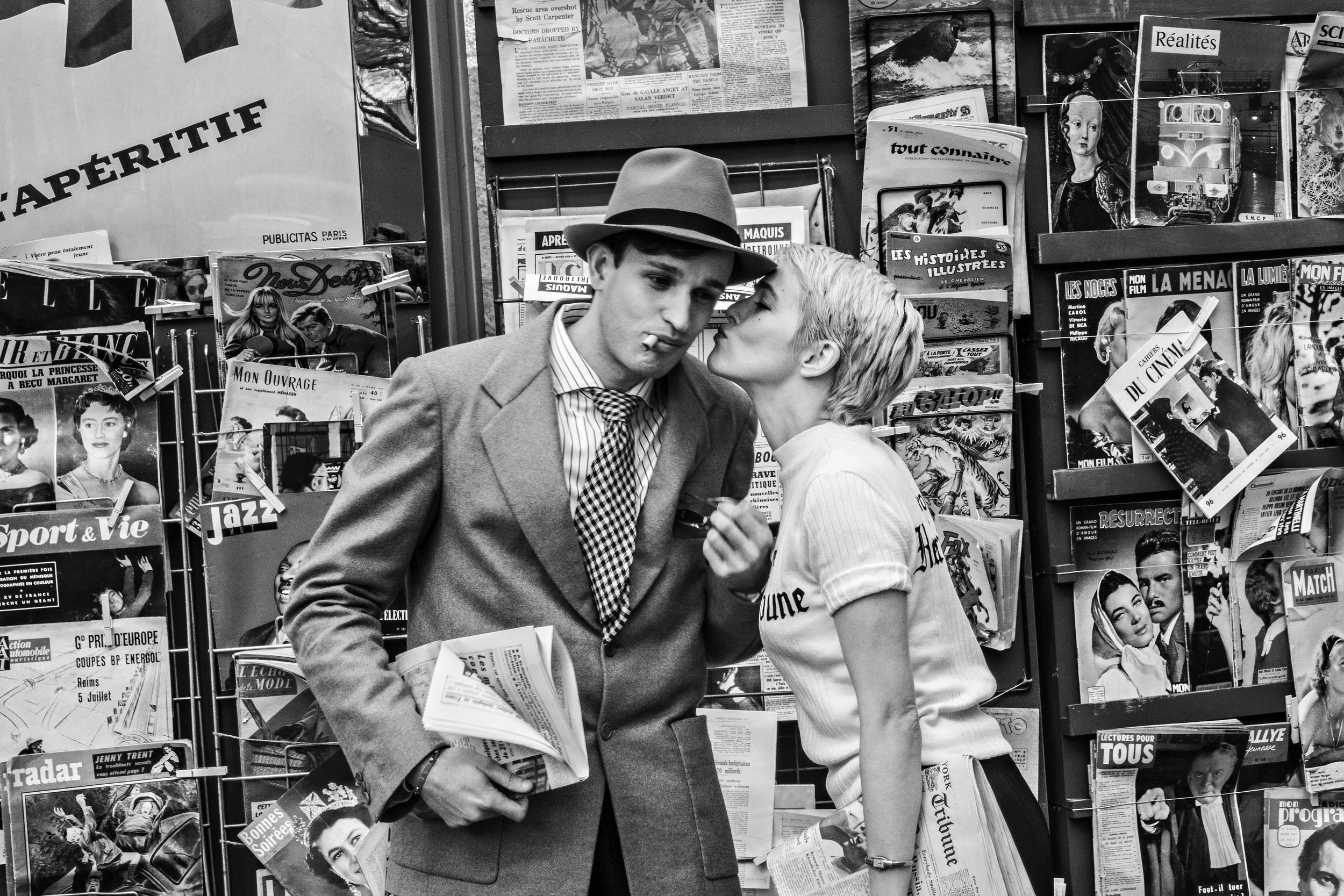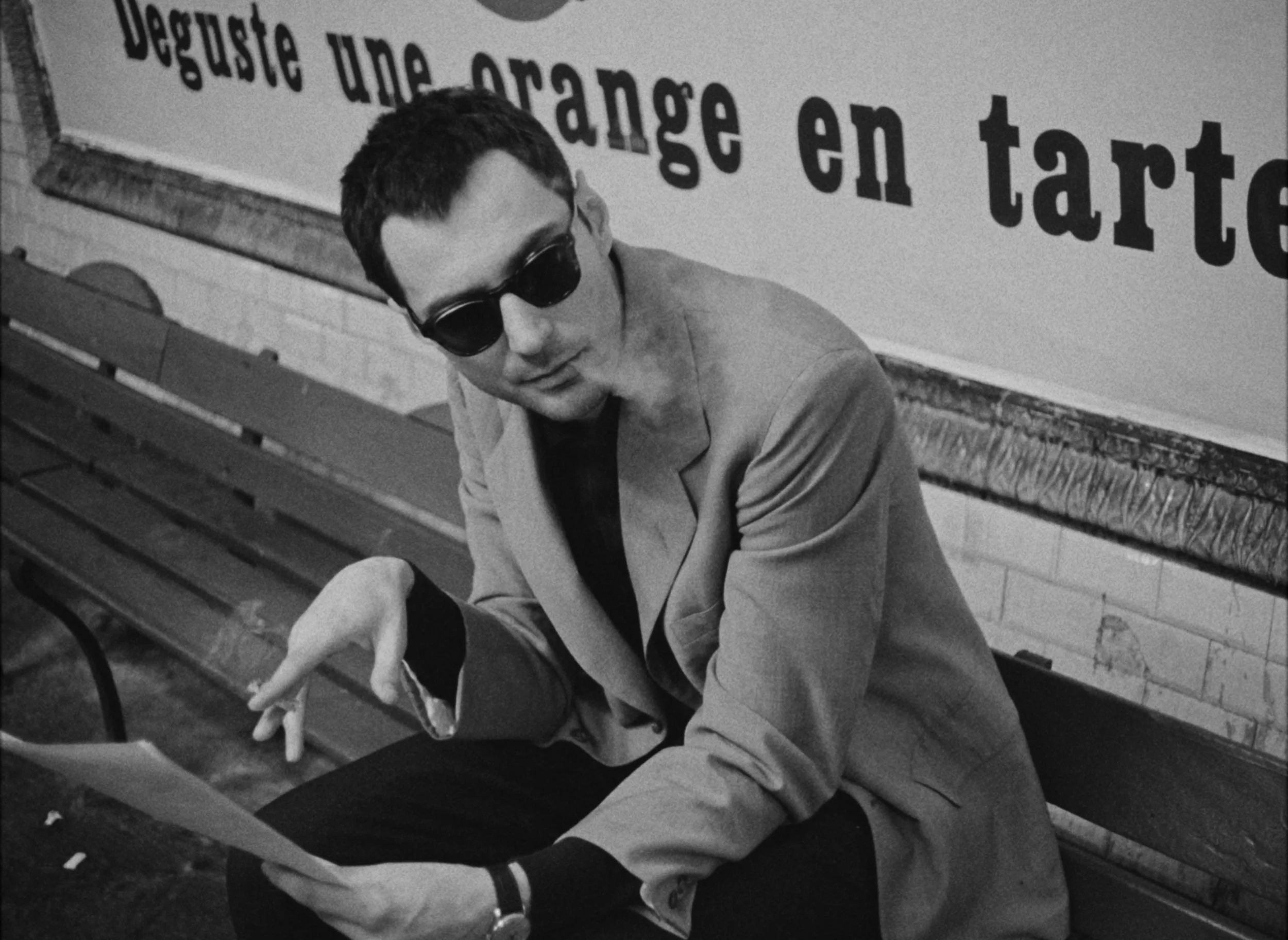Richard Linklater’s “Nouvelle Vague” Returns to the French New Wave
They say every movie is a miracle in itself. When you hear about the number of things that have to go well, or at least moderately well, for a movie to be made, it’s shocking that this industry is able to maintain its existence. In the 1950s, a group of young filmmakers sought to break the norms that constrained the world of filmmaking. This movement, led by film critics turned filmmakers, would become known as the French New Wave. One of the most famous movies to come from this era is Jean-Luc Godard’s Breathless. Godard would become known around the world from this film, but once upon a time, he was just a twenty-something film critic desperate to leave his mark on the art form. In Nouvelle Vague, Richard Linklater takes audiences to the set of Breathless and the magic of the French New Wave.
Jean-Luc Godard (Guillaume Marbeck) is a writer for the Cahiers du cinema publication that was founded in 1951 and became the cornerstone of the film community in France. While he enjoys being a film critic, he’s itching to direct his first feature. A close friend, François Truffaut (Adrien Rouyard), has just made The 400 Blows to critical acclaim. Inspired by the changing style of filmmaking, Jean-Luc convinces producer Georges de Beauregard (Bruno Dreyfürst) to fund his low-budget project. Without a script, a plan, or anything except his insane self-confidence, Jean-Luc hires actors Jean-Paul Belmondo (Aubry Dullin) and Jean Seberg (Zoey Deutch) to bring his story about a gangster couple to life.
Cr. Jean-Louis Fernandez/Courtesy of Netflix
If you’re not already familiar with the history of moviemaking, the ideas Jean-Luc presents in the film may not seem revolutionary. We all have cameras in our pockets, so of course we have the freedom to film anywhere and everywhere. Prior to the New Wave, filmmakers were confined to studios. If they did shoot on location, everything was carefully coordinated and orchestrated. Nouvelle Vague shows how radical Jean-Luc was in his way of creating Breathless. Jean grows increasingly frustrated during the 20-day shoot because she’s given no script, no direction, and isn’t allowed to have a hair or make-up stylist. It’s the antithesis of the films Hollywood was making at the time. Nouvelle Vague presents Jean-Luc as the personified air of cigarette smoke and pretension, desperate to make a piece of art devoid of caution. He wants the film to feel dangerous in its freedom, to fundamentally shake up the concept of what a movie is. Seventy years on, it’s safe to say he did what he set out to do.
Cr. Jean-Louis Fernandez/Courtesy of Netflix
“The best way to criticize a film is to make one,” Jean-Luc says. He speaks throughout much of the film in self-assured, sweeping generalizations. It feels so distinctly French that it almost comes across as a parody at times. And maybe he was a bit of a parody of the person he wanted to be then, of the lofty aspirations that he felt he wasn’t living up to. Nouvelle Vague doesn’t look at Jean-Luc as the living legend he becomes, but as the young man who is far too confident for his own good. Jean mercilessly mocks him, lamenting that she wanted to work with a true artist like Truffaut, not a kid who couldn’t direct himself out of a paper bag. Time would prove otherwise, of course. It’s likely that any introduction to film class includes Breathless. The DNA of this movie and its guerilla style of filmmaking can be found in so many contemporary voices working today.
There’s a sweetness to Nouvelle Vague that trumps almost everything else about it, but it’s a sweetness that will only be felt by those who view every inclusion of French New Wave critics and filmmakers like an Easter egg in a Marvel movie. Nouvelle Vague is an excuse for Linklater to go back in time to the beginning of an artistic revolution and play in the sandbox, but with the knowledge of what those building blocks would become. And if comic book lovers get to have their escapism to fantastical worlds, why can’t art house film lovers do the same? Nouvelle Vague takes itself seriously in its recreation, but knows that it’s not as revolutionary as the film it’s documenting, which could be disappointing to those expecting Linklater to do something deeper. As Jean-Luc says in the film, “Disappointments are temporary. Film is forever.” Nouvelle Vague is not the act of rebellion it documents, but it is a charming escape to a time film lovers wish they could’ve experienced firsthand.
support your local film critic!
~
support your local film critic! ~
Beyond the Cinerama Dome is run by one perpetually tired film critic
and her anxious emotional support chihuahua named Frankie.
Your kind donation means Frankie doesn’t need to get a job…yet.
Follow me on BlueSky, Instagram, Letterboxd, YouTube, & Facebook. Check out Movies with My Dad, a new podcast recorded on the car ride home from the movies.


